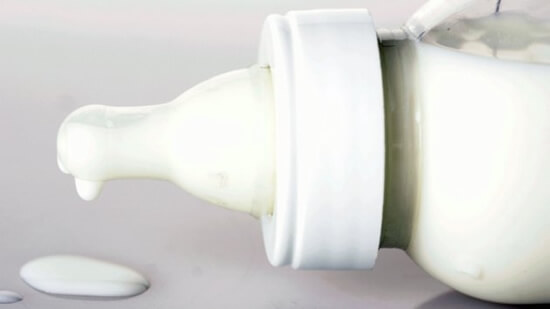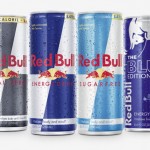Caffeine in the Breast Milk of Breastfeeding Mothers
Caffeine in breast milk can vary depending on how much caffeine the mother consumes.
The amount of 1 mg of caffeine per 3.4 floz or 100 ml of breast milk is the estimated amount present after a breastfeeding woman consumes a 16 floz Grande brewed coffee from Starbucks (330 mg of caffeine).
Breast Milk Caffeine Formula
Researchers found that women who consume 100 mg of caffeine usually transfer about 2-4 micrograms of caffeine per 1 ml of breast milk with peak concentration being 1-2 hours after consuming the caffeine.
- We took the average amount which is 3 micrograms/ml.
- 3 micrograms = .003 milligrams.
- .003 x 100 ml=.3 mg/100 ml of breast milk.
- A 16 floz Starbucks delivers 330 mg of caffeine so we have to multiply .3 by 3.3 to arrive at .99 mg or rounded up to 1 mg of caffeine per 10 0ml of breast milk.
Breastfeeding and Safe Caffeine Amount
The European Food Safety Authority recently released the findings of their research regarding caffeine safety and included data concerning lactating/breastfeeding women.
They concluded that single doses of about 200 mg pose no risk to the nursing child, but breastfeeding women should consume no more than 200 mg of caffeine per day in total.
However, other research shows that up to 3 months old, a baby’s body does not do a good job of processing caffeine. Therefore, it can build up in the baby’s system over time. A review of all research to date conducted by the University of Warwick found that there is no positive or negative association with small amounts of caffeine in breastmilk as it relates to the health of the baby.
Breastfeeding mothers should keep this in mind when consuming anything containing caffeine, however, after 3 months it is probably safe for mothers to have moderate caffeine amounts of 200 mg per day.
It is worth noting that caffeine, when given to premature babies or babies with low birth weight, actually stimulates their breathing and prevents sleep apnea and possibly sudden infant death syndrome. Recent research concluded that this treatment is safe and poses no risk to the baby’s cardiovascular system.
However, only medical professionals should administer caffeine to at-risk newborn infants since accurate dosing is paramount.

Get Help Quitting Caffeine
Reduce your caffeine intake without pain and discomfort.
Download our FREE ebookReferences
- Stavchansky S, Combs A, Sagraves R, Delgado M, Joshi A (1988). Pharmacokinetics of caffeine in breast milk and plasma after single oral administration of caffeine to lactating mothers, Biopharm Drug Dispos, 9 (3), 285-99.
- Aldridge, A., Aranda, J. V., & Neims, A. H. (1979). Caffeine metabolism in the newborn. Clinical pharmacology and therapeutics, 25(4), 447-453.
- Ulanovsky, I., Haleluya, N. S., Blazer, S., & Weissman, A. (2014). The effects of caffeine on heart rate variability in newborns with apnea of prematurity. Journal of Perinatology, 34(8), 620-623.





